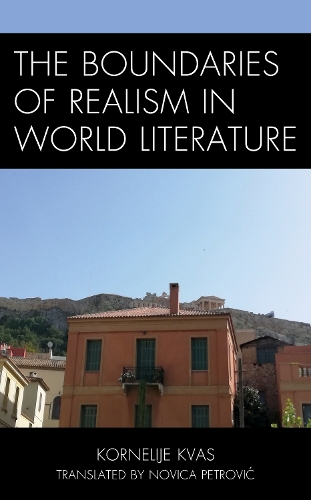
The Boundaries of Realism in World Literature
(Hardback)
Publishing Details
The Boundaries of Realism in World Literature
By (Author) Kornelije Kvas
Translated by Novica Petrovic
Bloomsbury Publishing PLC
Lexington Books
19th November 2019
United States
Classifications
Professional and Scholarly
Non Fiction
Literary studies: c 1900 to c 2000
809.912
Physical Properties
Hardback
206
Width 160mm, Height 233mm, Spine 22mm
494g
Description
This study is dedicated to a theoretical and critical examination of realism in literature. Proceeding from the mimetic theories of the era of antiquity, and then going on to explore formalists, structuralists, theories of possible worlds, and theories of simulation, Kvas points to the fictionality of (mimetic) realism, to literature and art as the creation of new, fictional aesthetic worlds, even whenas in the case of realismthere is a programmatic and practical inclination of such art and literature towards the world of the historical and the social, the real in the original sense of the word. This book is a valuable theoretical and literary-critical contribution to shedding light on the issue of realism in literature. Kvass journey through recent theoretical literature, his linking, often polemical in character, of theoretical insights to analyses of literary works, his properly justified determining of the boundaries of the realistic literary method and its deviations into the realm of the fantastic or magic realism, will certainly help the readers of this book to confront, in a new and dependable manner, the issues of realism in literature and art.
Reviews
Kornelije Kvas shows here that the realistic literary procedure is not necessarily limited to the objective representation of natural, social, and psychological reality, but that it is capable of extending itself to cover the area of symbolization of reality and elements of magical realism. Kvas considers carefully, for instance, Tolstoys interest in human psychology and Dostoevskys passion for the metaphysical aspects of the soul. Regarding Thackeray's novel, Vanity Fair, Kvas analyzes the interplay between trade and macro-politics as well as between the individual and economic change. Summarizing theory and interpretation, this book is well-researched and succinctan impressive scholarly work in comparative literature that stands prominently among other studies on realism. -- Neboja Radi, Cambridge University
Author Bio
Kornelije Kvas is professor at the University of Belgrade.
